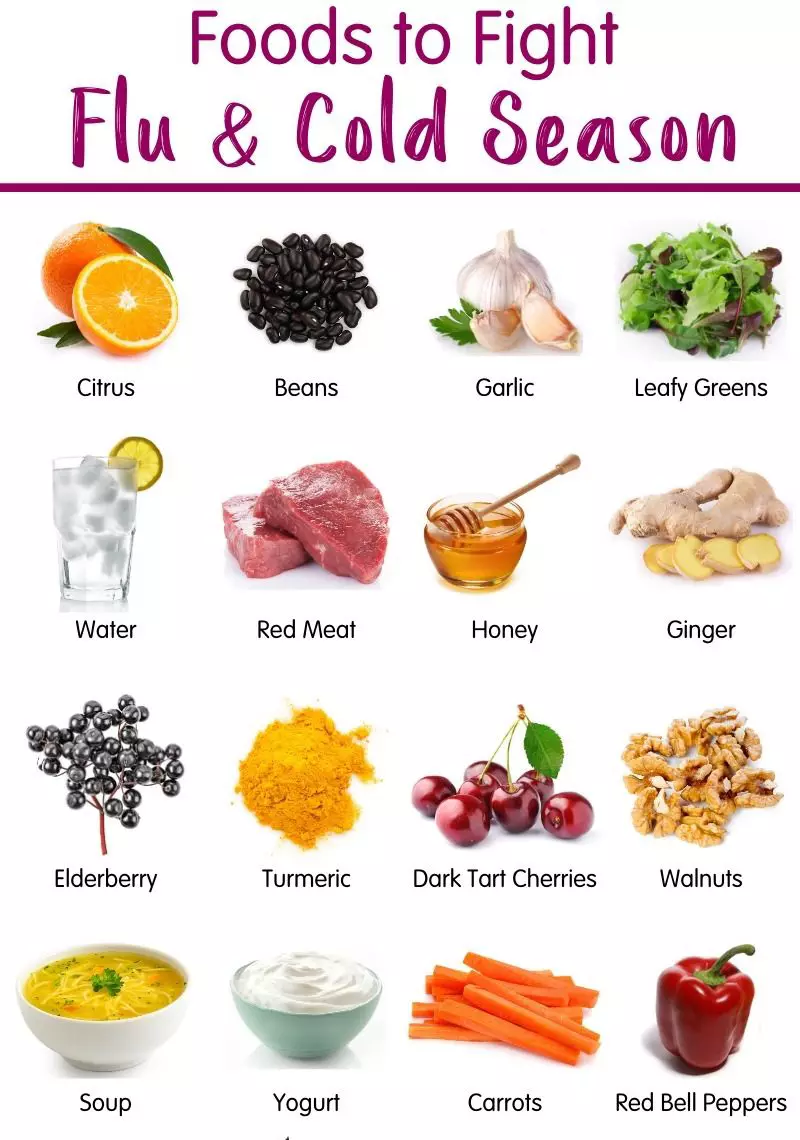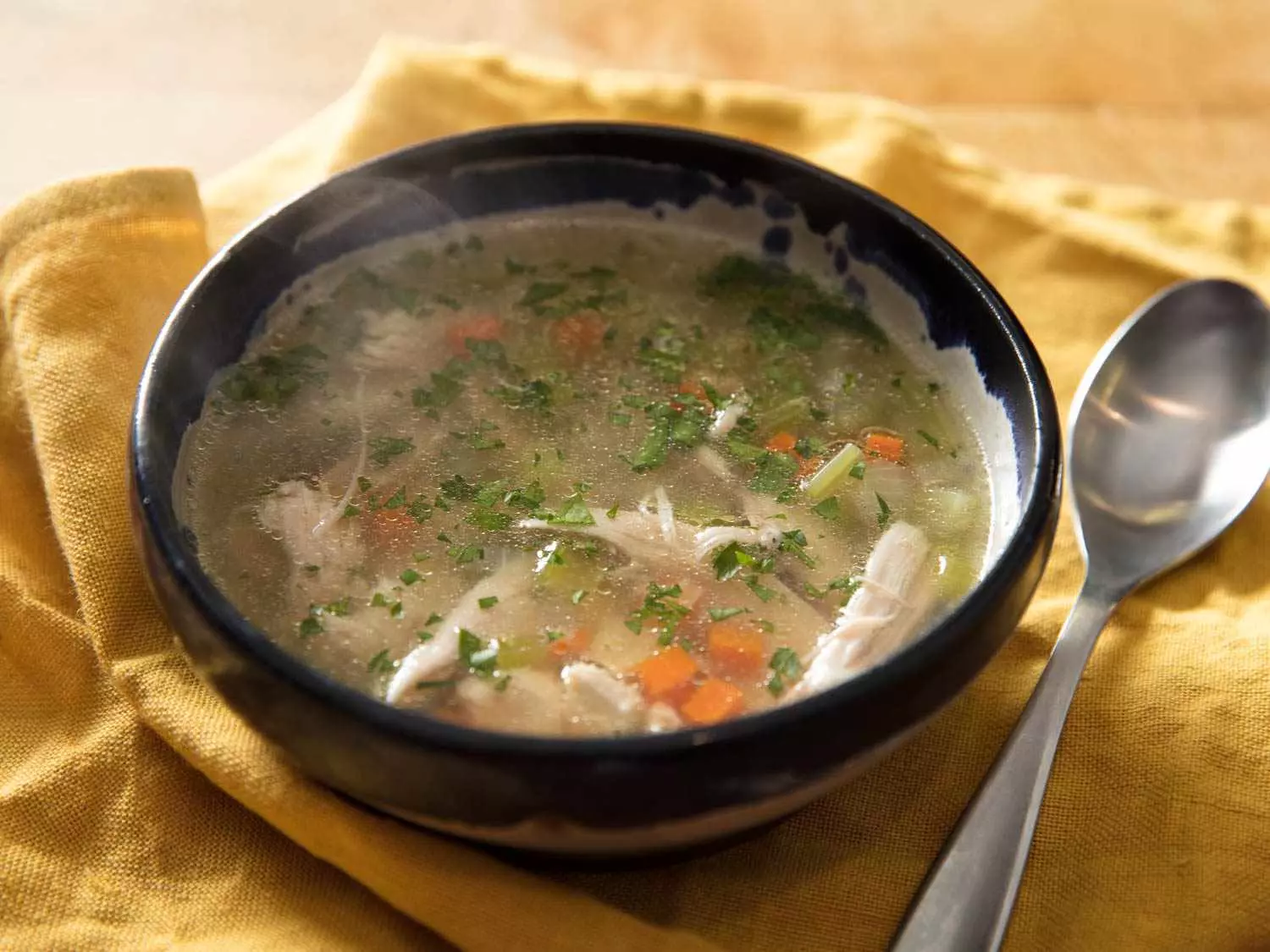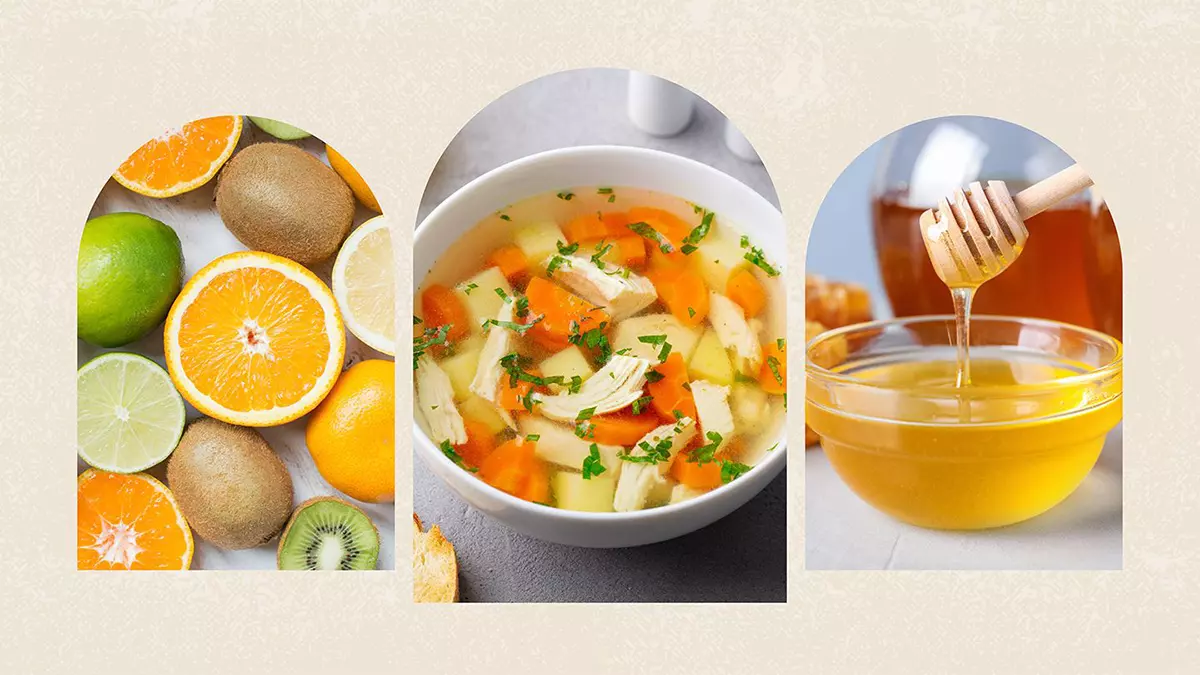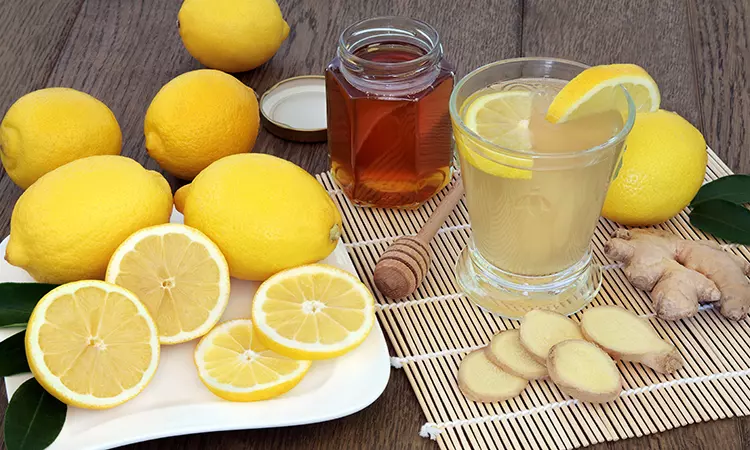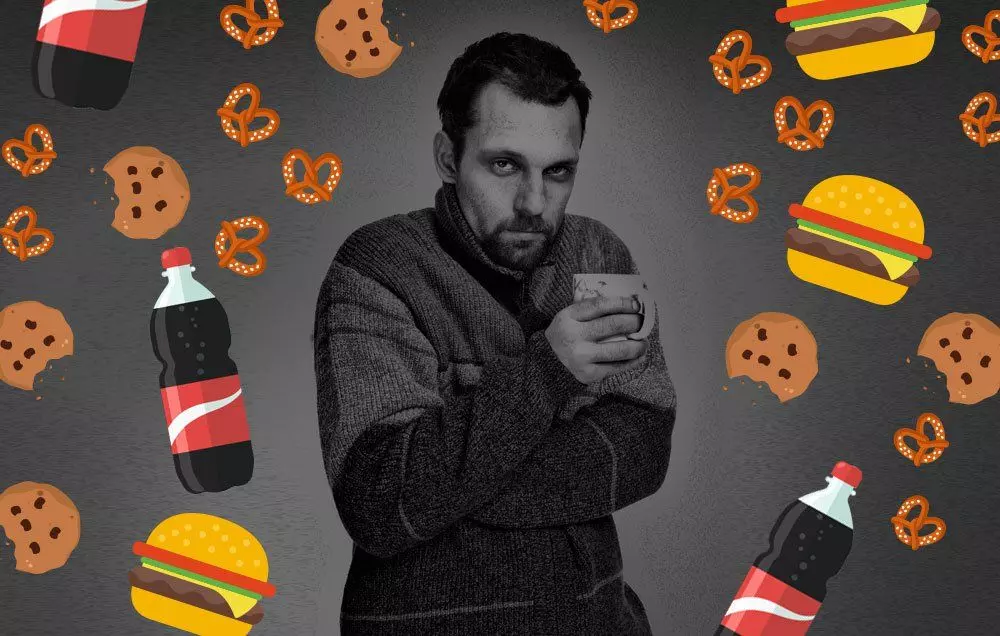Flu is an acute infectious disease of the respiratory tract, causing damage to the upper and lower respiratory tract, accompanied by systemic symptoms such as fever, headache, muscle pain, and weakness.
The disease usually goes away on its own but can also lead to many serious complications, mainly in the lungs, and even cause death.
Choosing the right nutritious foods can speed up the healing process, reduce symptoms, and help speed recovery from the flu.
People with flu can use the following foods to heal quickly:
Chicken soup or chicken porridge cooked with onions, perilla or chicken soup cooked with ginger is one of the good dishes to eat when you have the flu.
The substances in these dishes combine well together to help strengthen immunity. Chicken contains lots of vitamins A, E, C, B1, B2, PP and minerals, and is an easy to digest and absorb food.
You can replace chicken with beef, cook beef porridge with carrots or cook beef porridge with perilla, beef soup and carrots. Beef is rich in protein, iron, magnesium, selenium, vitamins B6, B12, zinc...
When you have the flu, your body easily loses water and electrolytes. Drinking enough water will help thin mucus and reduce airway congestion, replenishing lost electrolytes.
Some of the best drinks for the flu:
- Water: Keep a water bottle or large cup nearby so you can continue to drink water throughout the day when your body feels uncomfortable.
- Coconut water: Coconut water is rich in nutrients such as electrolytes, potassium and glucose, adding energy to the body. Can effectively reduce fever.
- Ginger tea: Ginger compounds are known to inhibit germs. Plus, its anti-inflammatory benefits thanks to a compound called gingerol can relieve muscle pain and headaches.
- Warm water with lemon: Warm liquids will keep the body hydrated and can thin mucus to help reduce airway congestion.
When recovering from the flu, add a variety of foods, fruits, colorful vegetables, and legumes to your diet.
Some foods shouldn't be eaten when you have the flu:
They can contribute to respiratory congestion, making the illness worse or causing complications.
- Dairy: While foods high in dairy may be appealing, it's best to limit dairy products, ice cream, and cheese. Drinking milk when the amount of respiratory mucus is increased can lead to the mucus feeling thicker and harder to drain.
- Hard foods: Crackers, chips, and other hard foods can aggravate coughs and throat conditions. Skip crunchy, hard foods.
- Processed foods: These foods can be high in salt, dehydrate the body and increase inflammation.
- Alcohol: Drinking wine, beer or any other alcoholic beverage leads to dehydration. This can lead to a more “stuffed” and congested feeling.
At the same time, when you have the flu, if possible, you should avoid contact with others, keep warm and rest, drink enough water to rehydrate and electrolytes, citrus juice has lots of vitamin C to increase resistance.
In addition, you can steam with leaves such as lemon basil, ginger, lemongrass... to help sleep well, reduce symptoms, and relieve colds; ensure personal hygiene, cover mouth when sneezing; regularly wash your hands with soap and clean water; Clean your nose and throat daily with salt water.
Maybe you are interested:

Symptoms of Shingles on the Skin

Healthy Living and Disease Prevention - Things to do Right Now
